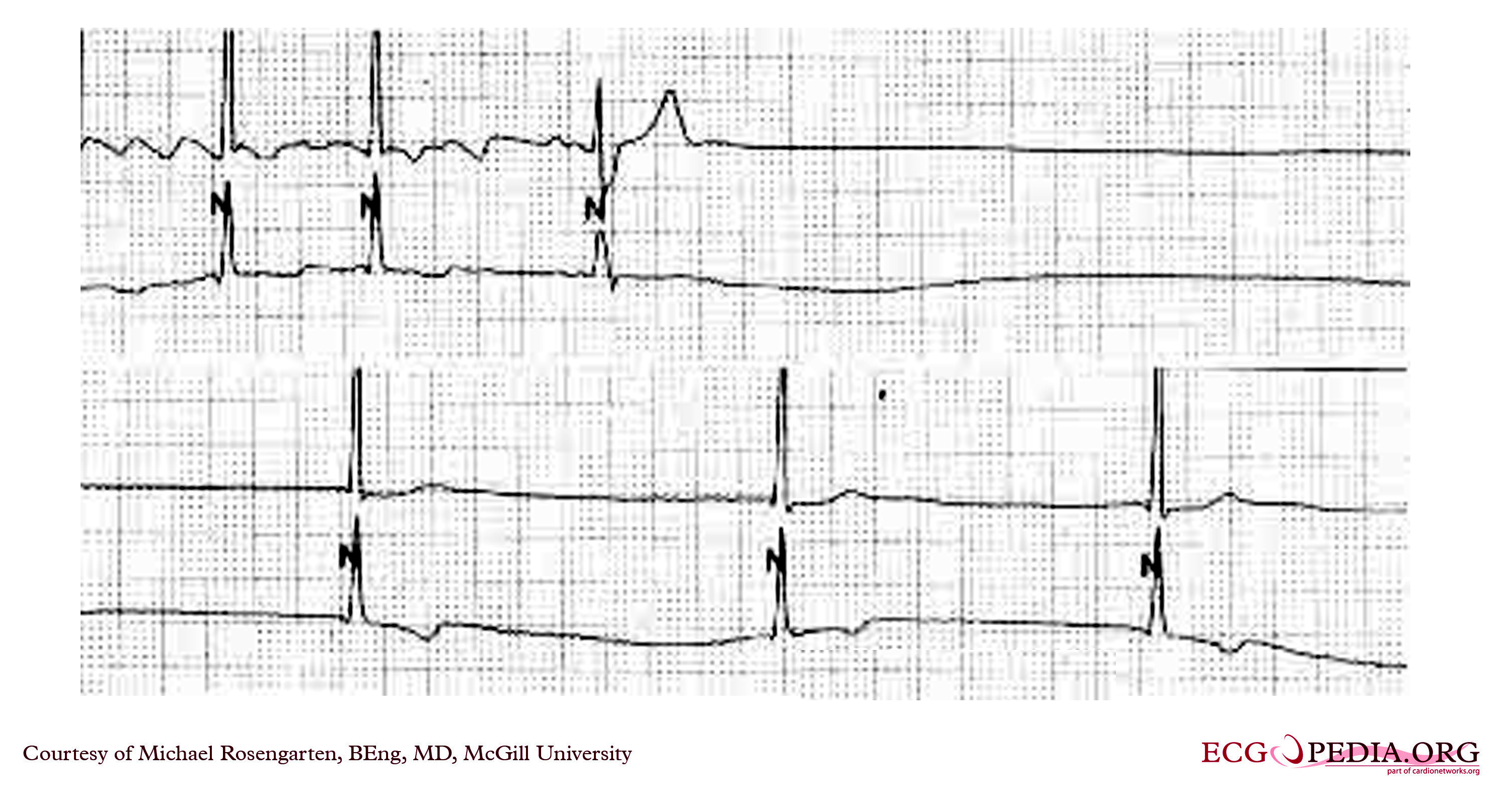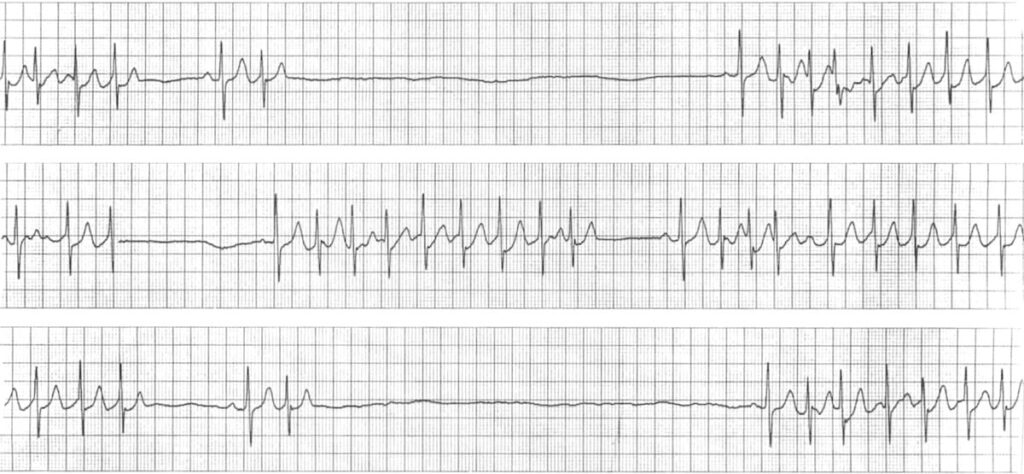Sick Sinus Syndrome, also known as SSS, is a group of heart rhythm disorders that affect the sinus node, which is the natural pacemaker of the heart. This condition can lead to an irregular heartbeat, causing symptoms such as fatigue, dizziness, and fainting. Understanding the causes, recognizing the symptoms, and exploring treatment options are essential for managing this condition effectively.

What is Sick Sinus Syndrome?
The sinus node is a small cluster of cells located in the upper right chamber of the heart. It generates electrical impulses that regulate the heartbeat. In people with Sick Sinus Syndrome, the sinus node does not function properly, leading to an abnormally slow or fast heart rate. This disruption in the heart’s rhythm can result in various complications if left untreated.
How Does the Heart’s Electrical System Work?
The heart’s electrical system controls the timing of the heartbeat. Normally, the sinus node sends out electrical signals at a steady pace, ensuring that the heart beats in a regular rhythm. These signals travel through the atria (the upper chambers) and then to the ventricles (the lower chambers), causing them to contract and pump blood efficiently. When the sinus node malfunctions, this process is disrupted, leading to irregular heartbeats.
Causes of Sick Sinus Syndrome
Several factors can contribute to the development of this condition. While it is most commonly seen in older adults, certain underlying health issues and lifestyle factors can increase the risk.
Age-Related Changes
As people age, the sinus node may naturally degenerate, leading to a decline in its ability to generate electrical impulses. This is one of the primary reasons why Sick Sinus Syndrome is more common in individuals over the age of 65.
Heart Disease
Conditions such as coronary artery disease, heart failure, and cardiomyopathy can damage the sinus node or disrupt the heart’s electrical pathways. Scarring from previous heart surgeries or heart attacks may also contribute to the development of this syndrome.
Medications
Certain medications, particularly those used to treat high blood pressure or arrhythmias, can interfere with the sinus node’s function. Beta-blockers, calcium channel blockers, and antiarrhythmic drugs are examples of medications that may exacerbate or trigger symptoms of this condition.
Genetic Factors
In some cases, genetic mutations may predispose individuals to develop problems with the sinus node. While rare, inherited forms of this condition can occur in younger individuals without other risk factors.
Symptoms of Sick Sinus Syndrome
The symptoms of this condition can vary widely depending on the severity of the heart rhythm disturbances. Some individuals may experience mild symptoms, while others may face more serious complications.
Bradycardia
Bradycardia refers to an abnormally slow heart rate, typically below 60 beats per minute. People with this symptom may feel fatigued, weak, or lightheaded. In severe cases, bradycardia can lead to fainting spells or even loss of consciousness.
Tachycardia
Tachycardia is characterized by an abnormally fast heart rate, often exceeding 100 beats per minute. This can cause palpitations, chest pain, and shortness of breath. Some individuals may alternate between periods of bradycardia and tachycardia, a pattern known as tachy-brady syndrome.
Dizziness and Fainting
Due to the irregular heart rhythms associated with this condition, blood flow to the brain may be temporarily reduced, leading to dizziness or fainting. These episodes can be alarming and may increase the risk of falls or injuries.
Fatigue
Many individuals with this condition report feeling persistently tired or lacking energy. This is often due to the heart’s inability to pump blood efficiently, resulting in reduced oxygen delivery to the body’s tissues.
Cognitive Impairment
In some cases, prolonged disruptions in heart rhythm can affect brain function, leading to confusion, memory problems, or difficulty concentrating. These cognitive symptoms may be mistaken for other conditions, such as dementia, especially in older adults.
Diagnosis of Sick Sinus Syndrome
Diagnosing this condition requires a thorough evaluation by a healthcare professional. Several tests may be performed to assess the heart’s electrical activity and identify any abnormalities.
Electrocardiogram
An electrocardiogram, or ECG, is a non-invasive test that records the electrical activity of the heart. It can detect irregularities in heart rhythm and help determine whether the sinus node is functioning properly.
Holter Monitor
A Holter monitor is a portable device that records the heart’s activity over a 24 to 48-hour period. This allows doctors to capture intermittent arrhythmias that may not appear during a standard ECG.
Event Recorder
For individuals who experience infrequent symptoms, an event recorder may be used. This device is worn for several weeks and records the heart’s activity only when symptoms occur.
Electrophysiology Study
In some cases, an electrophysiology study may be performed. This invasive procedure involves inserting catheters into the heart to evaluate its electrical pathways and pinpoint the source of the problem.
Treatment Options for Sick Sinus Syndrome
The treatment approach for this condition depends on the severity of symptoms and the underlying cause. In many cases, lifestyle changes, medications, or medical devices may be recommended to manage the condition effectively.
Lifestyle Modifications
Making certain lifestyle changes can help reduce the risk of complications. These include:
- Avoiding stimulants such as caffeine and nicotine
- Maintaining a healthy weight through diet and exercise
- Managing stress through relaxation techniques like yoga or meditation
- Regularly monitoring blood pressure and cholesterol levels
Medications
In some cases, medications may be prescribed to regulate the heart’s rhythm. However, these drugs must be used cautiously, as they can sometimes worsen symptoms. Common medications include:
- Antiarrhythmic drugs to stabilize heart rhythm
- Blood thinners to reduce the risk of blood clots
- Medications to manage underlying conditions such as high blood pressure
Pacemaker Implantation
For many individuals with this condition, a pacemaker is the most effective treatment option. A pacemaker is a small device implanted under the skin that helps regulate the heart’s rhythm by sending electrical signals to the heart when necessary. This can significantly improve quality of life and reduce the risk of complications.
Catheter Ablation
In cases where specific areas of the heart are causing abnormal rhythms, catheter ablation may be performed. This procedure involves using heat or cold energy to destroy small sections of heart tissue responsible for the irregular signals.
Surgical Interventions
In rare cases, surgery may be required to address structural problems within the heart that contribute to this condition. This is typically reserved for individuals with severe symptoms or those who do not respond to other treatments.
Living with Sick Sinus Syndrome
While this condition can be challenging to manage, many individuals are able to live full and active lives with proper care. Regular follow-up appointments with a cardiologist are essential to monitor the condition and adjust treatment as needed. Additionally, staying informed about the latest advancements in treatment options can empower patients to make informed decisions about their health.





